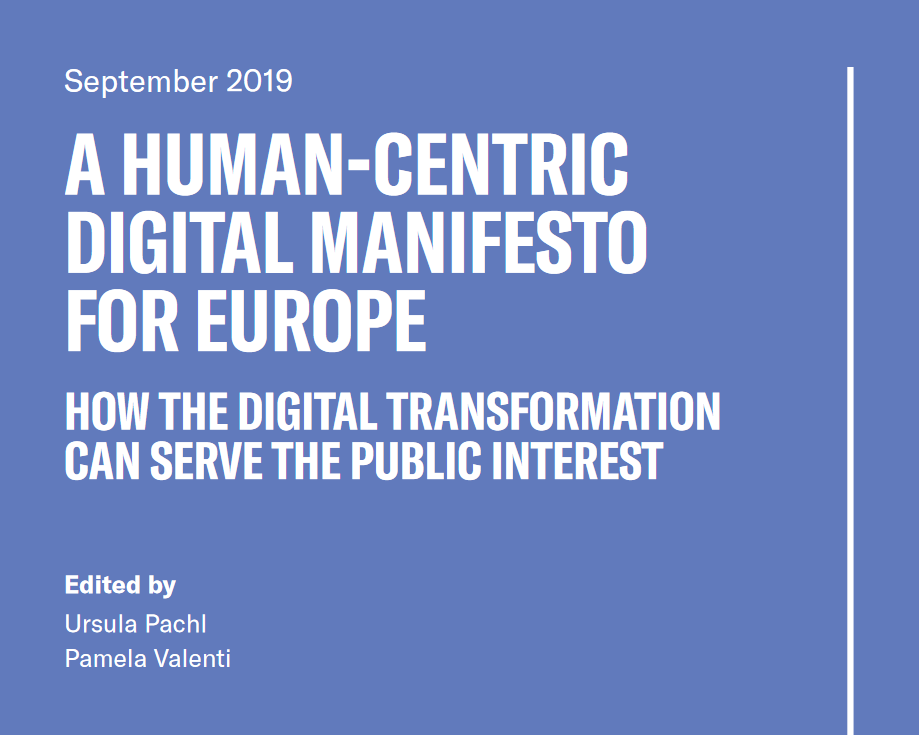New manifesto about how the digital transformation can serve the public interest
New manifesto about how the digital transformation can serve the public interest
BEUC News - 30.09.2019
As a new European Commission is set to start its next five-year term, 28 civil society organisations have joined forces to publish a manifesto about what they expect from the EU so that the digital transformation serves the public interest. At the initiative of the Open Society European Policy Institute (OSEPI) and The European Consumer Organisation (BEUC), a diverse group of experts, activists and representatives of rights groups, sectoral organisations, think tanks and business associations have identified possible ways for the EU to shape this digital transformation.
Over the past decade, new technologies have begun to alter societies dramatically. Entire industries — education, transportation, media, finance, healthcare, publishing — as well as trust in democratic institutions, governance and the very notion of open society are being turned upside down by the digital revolution. Much of what we took for granted — the nature of work, individual rights and even what it means to be human — is being questioned.
The digital revolution has brought immense benefits but also comes with adverse consequences: surveillance capitalism based on the exploitation of our personal data; the growing power of big data monopolies; the decline of mainstream media and other.
Europe is now faced with the dramatic challenge, responsibility and opportunity of pioneering a better digital society. To do so, the next European Commission will need to:
-
Focus on the societal impact of digital technology, looking beyond the single market and individual privacy to develop a European model of digital transformation predicated on human dignity, freedom, democracy, equality, rule of law, human rights, solidarity, justice, inclusion and non-discrimination;
-
Strongly commit to rights-based policies and regulation, particularly at a time when tech giants increasingly push forward narratives and commitments on ethics in what seems like an attempt to dodge issues of public accountability and societal interest (i.e. ‘ethics washing’). Principles informing EU policymaking in the digital sphere should build on the EU Fundamental Rights framework, and expand it to ensure that existing offline rights are protected online;
-
Ensure that transparency, accountability and participation underpin the development of human-centric digital policies in Europe. The genuine, meaningful involvement of civil society in the development of the next digital agenda for Europe will be critical to designing and implementing policies and regulation that serve the public interest and foster open societies.
Click here for the full report.



